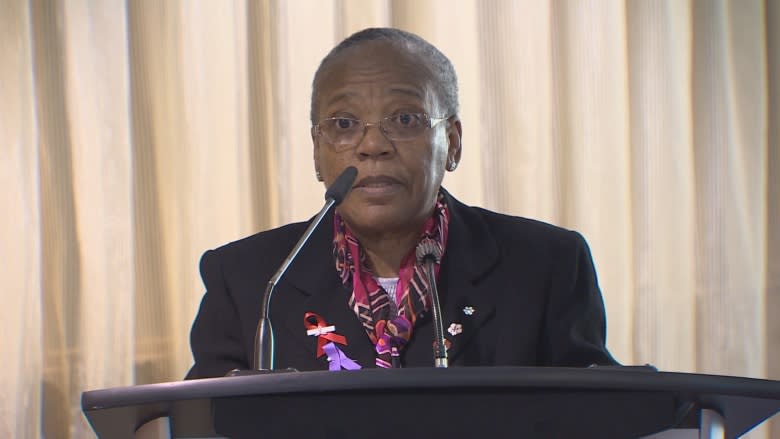Senator wants to hear from African-Canadians on cannabis legalization
Nova Scotia Senator Wanda Thomas Bernard wants to explore why African-Canadians have mostly been silent on the legalization of marijuana in Canada.
"I think part of the silence is pretty obvious, that up until now cannabis has been — is — illegal, and so, you know, I think that people are reluctant to talk about something that's illegal that may somehow connect them to illegal activity," Bernard said in an interview Monday.
"I think also the fact that there are so many issues that the black community right across this country is dealing with, so this is probably low on a list of a lot of issues."
On Saturday in Halifax, Bernard and her Africentric social work class will host a public discussion about the legalization of marijuana at 3 p.m. at the Dalhousie School of Social Work in the Mona Campbell Building.
"The consultations have not had any information around how does the legislation impact people of African descent. African voices have been pretty silent on what the situation is for them, how it impacts them, what their thoughts are about it. So I felt that it would be important to create an opportunity to hear from African-Canadians."
The federal Liberal government has set July 1 for the full implementation of legal cannabis. However, that legislation could be delayed. Once the law passes, consumers will be able to purchase legal, recreational marijuana from storefronts.
Bernard said it's important to hear from African-Canadians, especially because of the significant increase in the number of black men and women incarcerated across the country in recent years.
"Part of that is related to the get tough on crime legislation that we've had, and many of those folks who are incarcerated have been incarcerated for simple possession charges," she said.
Provincial Justice Department numbers showed that in 2014-2015, about 14 per cent of provincial inmates were African-Nova Scotian and seven per cent were Aboriginal. There is also a higher percentage of black and Indigenous inmates in federal prisons.
Bernard will take what she hears from black community members back to the discussion in the Senate.



